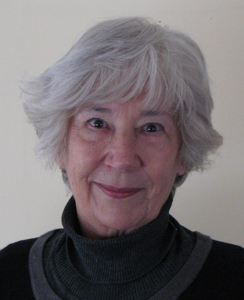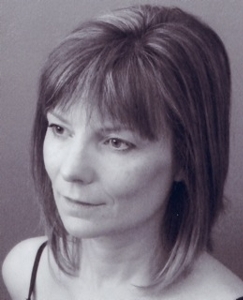| site search by freefind |
| Yve Louis interviews... | ||

|
Felicity Plunkett | |

|
||
|
Born and raised in Sydney, Yve Louis has worked as an actor; playwright; director; scriptwriter and copywriter. Since the early 1980s her poetry has been published nationally as well as in the USA.
Living and working in Armidale since 1985, she co-founded Poetzinc, acting as coordinator from 2000 to her retirement in 2007. Poetry by Yve Louis: Lilith's Mirror, 1999 Voyagers, 2003 The Yellow Dress, 2005 Notown, 2009 |
about her work | |
|
Felicity Plunkett’s debut collection of poetry, Vanishing Point, won the Arts Queensland Thomas Shapcott Prize and was shortlisted for the Western Australian Premier’s Book Awards, the Arts ACT Judith Wright Prize and the Anne Elder Award.
Poet and critic David McCooey reviewing the collection described it as “extraordinary... dynamic... intensely original and often comic” and Plunkett as a major new talent. Writing for the American journal of Australian Studies Antipodes, A. Frances Johnson wrote of ‘indelible emotional power’, ‘cut-glass brilliance’. ‘Plunkett’s poetic invocations of female desire … are often matchless’ and the collection ‘a subtle marriage of irony and emotion’. Poet Stephen Lawrence praised an ‘intense, lyrical debut’. |
||
| The Interview |
YL: I'd like to talk about your poetry in general and Vanishing Point in particular. Would you be happy for us, broadly, to adopt Umberto Eco's directive when he says: 'The author must not interpret. But he may tell why and how he wrote his book.' (Reflections on the Name of the Rose)?
FP: I’d been planning a collection for a while, but two opportunities gave me support. I received a Literature Board Emerging Writer’s grant for 2005. Then, after moving to Brisbane, I became eligible to enter the Arts Queensland Thomas Shapcott Prize for an unpublished manuscript. The prize includes publication by UQP. I had started writing a manuscript, and thought that the discipline of editing and completing a draft and meeting the deadline would be helpful towards preparing a full collection. I was surprised and delighted when I won. A year later Vanishing Point appeared. Amongst those various metaphors of murdering darlings and abandoning offspring (the former a well-known imperative for writers when editing work, the latter the idea of the need not to finish work so much as to abandon it) I felt that a deadline was a good thing. Along the way, two groups of poems that ended up in the book won generous prizes in the Dorothy Sargent Rosenberg Prizes (for ‘young poets of unusual promise’). I was fortunate to be able to take a step back from the academic work I’d been doing into writing time paid for by the grant and prizes. So that was the practical path to the book. The imaginative path involved all the destinations of my working life, a life of reading and writing and teaching literature, though perhaps that sounds a bit grand!
YL: You begin with a poem about a journey and we gather, by the title of the collection that you, as poet, head towards some final destination. I'm guessing that this trajectory was not pre-planned but rather evolved as the writing progressed?
FP: At the time I began the book, I had a toddler, and a baby on the way, and I was fascinated by the scientific languages used to talk about pregnancy and birth. Through my critical research into mourning and elegy I was familiar with the idea that ours has become a death-denying culture, but I suspected that, in some ways, it was also birth-denying, in the same sense of a removal of rituals and language to express the event. At the start of my second pregnancy, though, my father became ill. His death from cancer came two days before my daughter’s birth, and in some ways my need to think through the idea of the intersections of birth and death gave the book its direction. I sometimes quip that I decided to focus on a couple of small areas for my first book. When I think of the collection’s origins I am reminded of a line of Virginia Woolf’s that writers need to ‘arrange whatever pieces come your way’. I found serendipitous connections with other ideas such as the moment where scientific creativity birthed destruction with the successful testing of the first atomic bomb in the New Mexico desert of the Jornada del Muerto (or ‘journey of the dead man’). My exploration of Oppenheimer and the bomb became one way of considering some of these ideas both obliquely and directly. When I later read E.L. Doctorow’s comment that ‘Writing a novel is like driving a car at night. You can only see as far as the headlights, but you can make the whole trip that way’, it rang true to my experience of the book’s development. Exploring the idea of the vanishing point’s illusory end-point gave me a further means of imagining the collection.
YL: In the introduction to your workshop you quote Sylvia Plath: 'Writing poetry is a tyrannical process.' From your vantage point of very full professional—and family—lives, how does one match that creative tyranny against other demands?
FP: By the development of superb balancing skills. I’m working on that. As a freelance writer, editor and teacher now, I sometimes have a moment of feeling I’m balancing enough income-generating work with room to do my ‘own’ work, but there’s a continual adjustment, for me, and when my professional work is energizing it works best. I value the freedom and flexibility to create a working life that fits around my children, who are inspiring and interesting people.
YL: Headings of all three sections of the collection refer to 'flakes'—flakes of dream, flakes of life, breaking into flakes. I read this not only as a structuring device, but also to indicate what it is to be a practising poet. Would you care to comment?
FP: It started when I noticed the word flake cropping up all over the place. For a long time I’ve loved an image in Leonard Cohen’s song ‘Famous Blue Raincoat’: ‘You treated my woman to a flake of your life, and when she came back she was nobody’s wife’. Then I read a line in John Banville’s novel Athena about flakes of identity falling away. The idea of these flakes of quotation, imagining and desire floating across our minds, and sometimes lodging, offered a way of thinking about the process and the composition of a collection of poems. A suite of flake poems, scattered through the collection, and re-collected in Seastrands imagines everything made of flakes and re-making itself, including the collection itself. I had thought that that was the end of flakes, but I was surprised to find them appearing in my new work about the sea. But the lodging of flakes—the flake of another person’s life, or the flake of an idea—is some kind of mnemonic for the processes of fascination and obsession poetry requires and originates from.
YL: Felicity, I'd like you to talk a little about the role of the reader. What is your vision of the ideal poetry reader? How does this influence your own poetic?
FP: There are real and figurative versions of the reader, I suppose. I’ve been enabled by wonderful friendships with other writers who’ve been interlocutors for me, and from whose work I have learned. One of these is my friend Wendy James, a wonderful writer of fiction, and former resident of Armidale. Having a trusted, generous and well-read reader who will look at a draft is invaluable. I can easily conjure up a critical and disdainful reader who would recommend that I stop all writing immediately. But to find, instead, mainly deeply generous and careful reviewers and readers has shaped my new work. I suspect that these warring factions in our own imaginations determine much of what we dare and risk, and that too cautious an approach may result in a lack of vitality.
YL: As a long-time reader, teacher, editor and reviewer of poetry what is your view on the continued relevance of regional poetries—considering the hold of cyber-speak and particularly, in our case, the globalisation of English?
FP: The internet’s provision of access to writing and writers beyond our own sphere has an important role in expanding reading, and battling small pond-ism and isolation. However, since most of the work of writing goes on in solitude, and in a quiet room (ideally… I find the quiet room elusive at this stage of my life) the local and the even-more derided domestic are obviously important to the energies of any piece of work. When jet-setting writers note that they have travelled to this place and that, I always hope, for them, that they’ve found that same quiet room wherever they are. Ursula K Le Guin writes about the overvaluing of extroversion and the need for writers to go inwards, and I suspect there’s an analogy here with the regional and the global. Ideally, a regional culture can involve enabling relationships with other writers and readers. But virtual communities of practice can create cultures too, and a writer’s sense of the large world of other writers is important.
YL: Given the mantra that 'poetry changes nothing' can there be a place for poetry in a world that we've brought so dangerously close to a point of no return?
FP: After that apparently bleak line in Auden’s In Memory of W.B. Yeats (‘poetry makes nothing happen’) he goes on to list what it does do: ‘it survives’, he repeats: ‘a way of happening,/a mouth.’ The final section of the poem urges the poet to ‘follow right/to the bottom of the night’; to ‘persuade us to rejoice’ and ‘teach the free man how to praise’. It’s a knotty kind of poem, but Auden does suggest that things make poetry happen —‘ mad Ireland hurt you into poetry’—and that poetry has enormous energy. The broadest idea of poetry accumulates those elements and works as a tonic and corrective against a mindless and unimaginative life, for readers and writers. There can be activism in poetry, but perhaps its survival is an act of preservation of the imaginative and the intangible against the acquisitive and superficial? I’m thinking, here, too, of a comment Dorothy Porter once made in an interview: ‘Why should poetry be the virginal wall flower? It has always been a lightning rod for the sacred, the extreme and the daemonic. Ginsberg's Howl is one of the most memorable and courageous poems of the twentieth century. It flames in and out of the madhouse—but is essentially a profound humane poem of spiritual survival.’
(Dorothy Porter interview with Rosanna Licari, in Stylus Poetry Journal).
YL: And finally, what do you plan for your own poetry? After Vanishing Point (2009) and the chapbook Seastrands (2011) is there another body of work already in progress?
FP: Seastrands became the bridge between two collections, so I’m working on a new collection with the unlikely starting point of a sailor lost at sea in a 1968 round-the-world yacht race. I’m working on poems to do with the race and relating to ideas of the body, and bodies of water.
YL: Thank you Felicity. And we very much look forward to your workshops, talk and reading in November.
FP: Thank you, Yve. It’s a pleasure to have this virtual conversation with you, and I appreciate your insightful, fascinating questions. I look forward to visiting Armidale, too.
Yve Louis, 2011
The New England Writers' Centre is assisted by the NSW Government through Arts NSW.